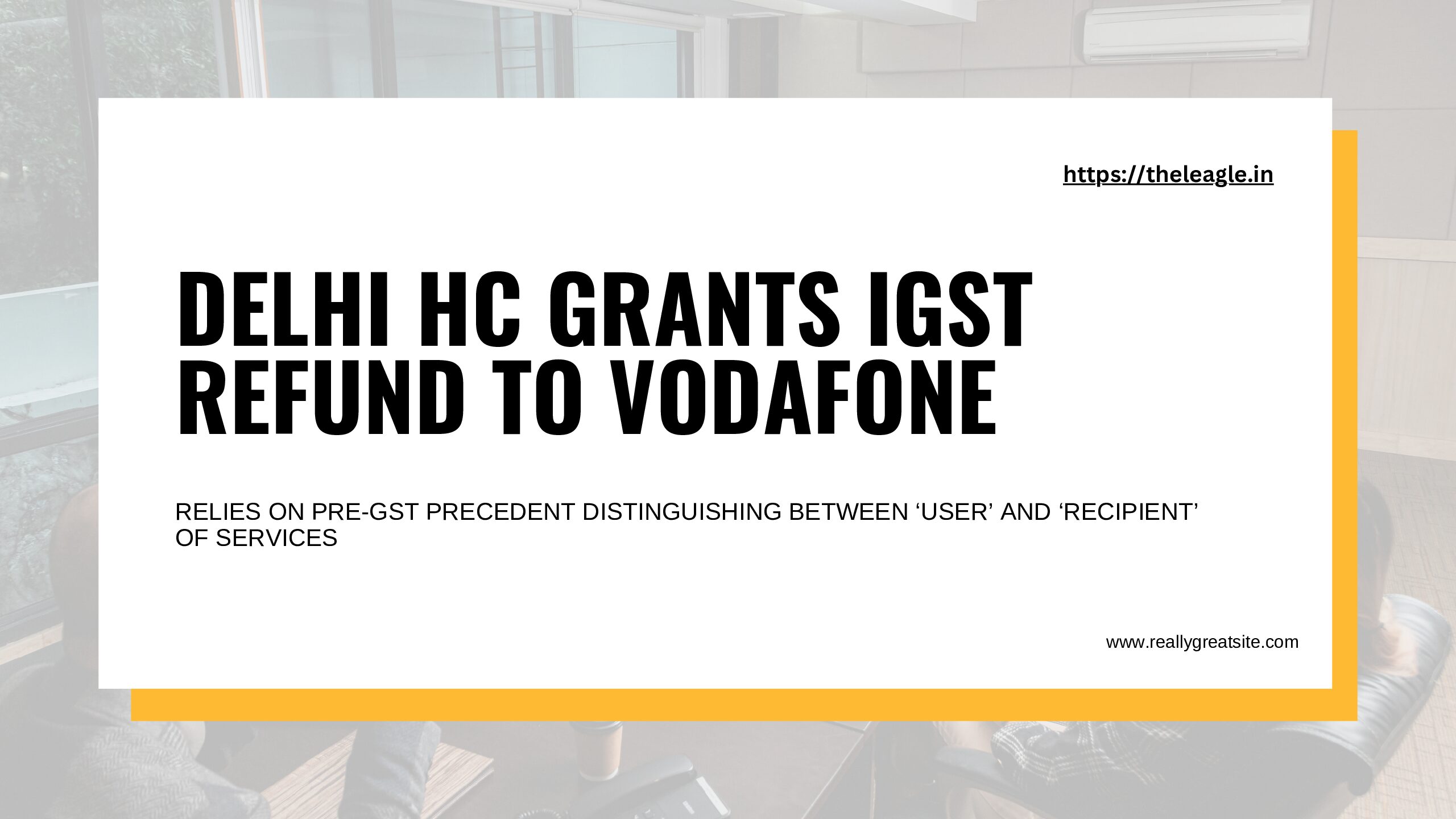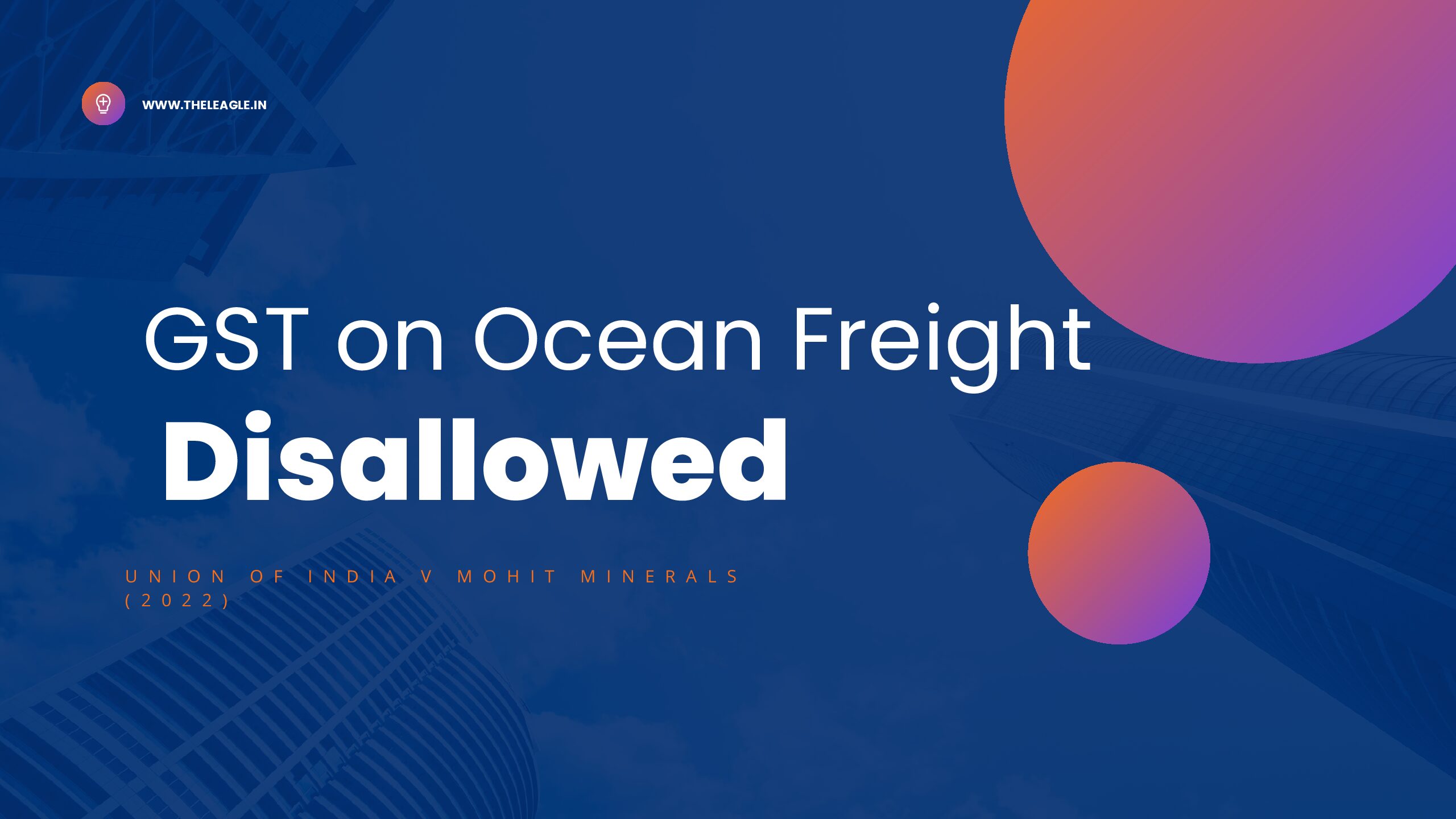In a recent judgment[1], the Delhi High Court ordered the Revenue Department to refund Integrated Goods and Services Tax (‘IGST’) claimed by the petitioners in respect of telecommunication services rendered by them to Foreign Telecom Operators (‘FTO’). Petitioners had entered into agreements with FTOs whereby they provided connectivity services to inbound subscribers of the latter. However, the Revenue Department rejected their refund claim on the ground that the services provided by petitioners did not amount to export of services. The High Court held otherwise.
Facts
Petitioners had entered into agreements with FTOs wherein the former agreed to provide connectivity services to subscribers of the latter who were in India/inbound subscribers. There was no privity of contract between the petitioners and subscribers of FTOs, the payments for connectivity services were made by subscribers to FTOs who, in turn, made payments to petitioners as per the terms of the agreement.
The Revenue Department rejected petitioner’s claims for refund on two grounds: first, that the petitioners filed their claim for refund under Section 54 beyond the limitation period; second, the services provided by petitioners did not amount to export of services since the services were provided to inbound subscribers who were present in India and services were consumed in India. The petitioners, on the other hand, contended that they entered into agreements with FTOs and provided services to the FTOs. The FTOs, in turn, provided services to inbound subscribers. Thus, the services provided by petitioners to FTOs amounted to export of services since the FTOs were located outside India and the place of supply of services was outside India.
Delhi High Court did not delve deeply into the issue of whether the petitioner’s claim was filed after the period of limitation. This is because the period of limitation was extended by the Central Board of Indirect Taxes and Customs via a Notification dated 05.07.2022. Thus, the only issue that the High Court had to engage with was whether services in question constituted export of services within the meaning of Section 2(6), IGST Act, 2017.
Delhi High Court Decides, Relies on Precedent
Section 2(6), IGST Act, 2017 defines ‘export of services’ and states as follows:
“export of services” means the supply of any service when, –
- The supplier of service is located in India;
- The recipient of service is located outside India;
- The place of supply of service is outside India;
- The payment for such service has been received by the supplier of service in convertible foreign exchange; [or in Indian rupees wherever permitted by the Reserve Bank of India]; and
- The supplier of service and recipient of service are not merely establishments of a distinct person in accordance with Explanation 1 in section 8;
(emphasis added)
In the impugned case, the petitioner’s argument was that the recipient of service were FTOs, located outside India while the Revenue’s case that the recipient of service was the inbound subscriber who received the connectivity service due to an agreement between the petitioner and FTO. Since the Revenue was arguing that the inbound subscriber was the recipient, it by extension contended that place of service was in India. Thus, the services provided by the petitioner was not export of services and not entitled to a refund.
The Delhi High Court instead of adjudicating on facts as to whether the inbound subscriber could be legitimately treated as a recipient of the petitioner’s service, cited the definition of export of services under Rule 6A, Service Tax Rules, 1994 which is similar to Section 2(6), IGST Act, 2017. It then relied on Verizon Communication case[2], to state that the said case covers the issue in the impugned case based on which the Revenue Department has granted refunds to predecessor of the petitioner and thus it allowed the petitioner to claim refunds in the impugned case as well.
Precedent of Verizon Communication Case
The Delhi High Court had considered the issue in detail in Verizon Communication case, where similar facts involved domestic telecom service providers, Verizon India and Verizon US. Verizon India had entered into a Master Supply Agreement with Verizon US for rendering connectivity services for the purpose of data transfer. Verizon India had filed for refund of taxes paid on its input on the ground that its output service to Verizon US, i.e., business support service, constituted as an export of service. The Delhi High Court agreed with Verizon India and in allowing its claim for refund, observed that:
The position does not change merely because the subscribers to the telephone services of Verizon US or its US based customers ‘use’ the services provided by Verizon India. Indeed in the telecom sector, operators have network sharing and roaming arrangements with other telecom service providers whose services they engage to provide service to the former’s subscribers. Yet, the ‘recipient’ of the service is determined by the contract between the parties and by reference to (a) who has the contractual right to receive the services; and (b) who is responsible for the payment for the services provided (i.e., the service recipient). This essential difference has been lost sight of by the Department. In the present case there is no privity of contract between Verizon India and the customers of Verizon US. Such customers may be the ‘users’ of the services provided by Verizon India but are not its recipients. (para 46)
The distinction between the ‘user’ of services and ‘recipient’ of services proved to be crucial in the Verizon Communication case, and the Delhi High Court in the impugned case relied on the same.
Conclusion
The distinction between the user of services and recipient of services has been articulated in various cases, only for the said controversy to rear its head again before the Courts. In the impugned case, there was little reason, on substantive grounds, for the Revenue Department to deny refund to the petitioners. Courts, for example, have clearly that the customer’s customer is not your customer and that if a service is provided to a third party at the behest of your customer, the recipient is the customer and not the third party.[3] In the impugned case, this was squarely applicable as the inbound subscribers were not the recipients of services by petitioners, but it was the FTOs. Thus, the service provided by the petitioners to FTOs constituted as export of services entitling them to refund of IGST.
[1] Vodafone Idea Limited v Union of India & Others 2023: DHC: 7468-DB.
[2] Verizon Communication India Pvt Ltd v Assistant Commissioner of Service Tax, Delhi-III 2018 (8) GSTL 32.
[3] See Vodafone Essar South Limited v CCE, Bangalore (Adn). Available at: https://indiankanoon.org/doc/193357462/ (Accessed on 30 October 2023).

